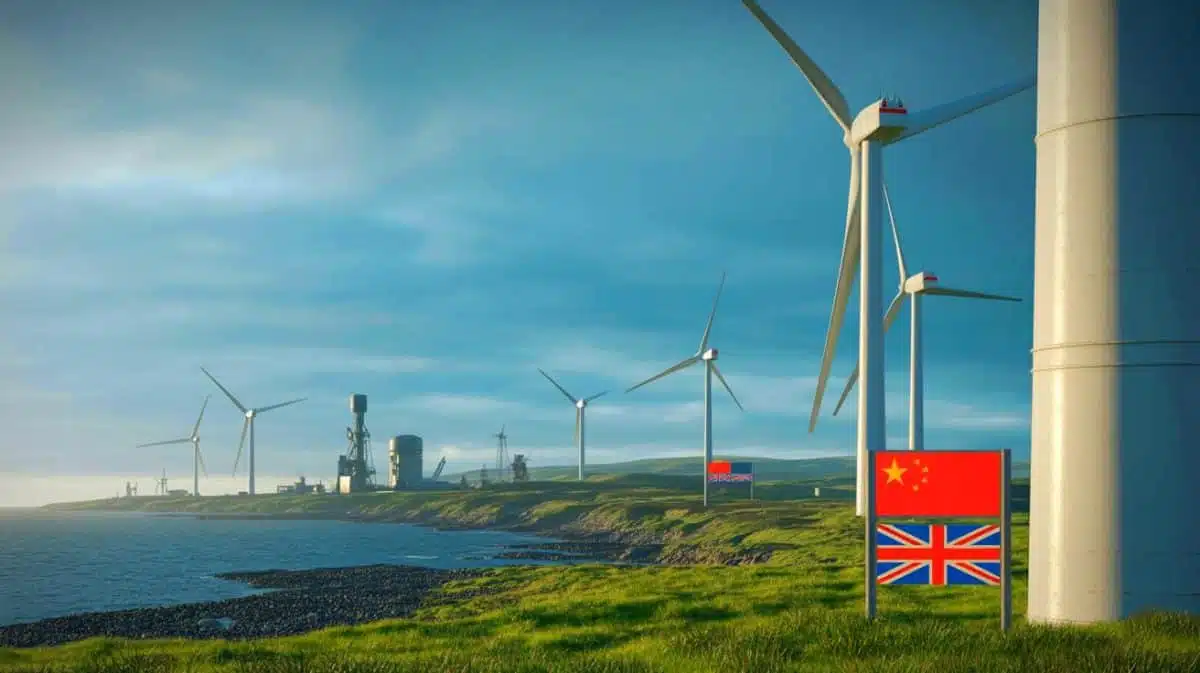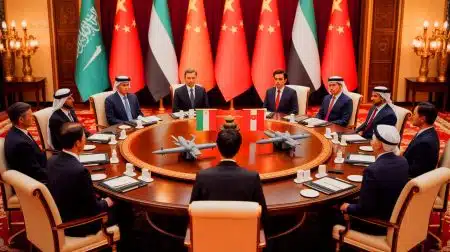| IN A NUTSHELL |
|
The intersection of international relations, energy policy, and national security is currently being tested in the United Kingdom, as the country finds itself at a crossroads between welcoming foreign investment and protecting its strategic interests. At the center of this unfolding drama is Mingyang Smart Energy, a Chinese manufacturer poised to build a wind-turbine plant in Scotland. This development has ignited a debate that encapsulates broader geopolitical tensions, especially as the US raises alarms over potential security risks. The situation underscores how energy ambitions can sometimes clash with diplomatic and security considerations.
Ministers Weigh Mingyang Plan
British ministers are in the midst of deliberating whether the proposed Mingyang wind-turbine plant in Scotland should proceed under the National Security and Investment Act. The issue has sparked an ongoing discussion within Whitehall, reflecting a variety of perspectives on the potential impact of this investment. While Mingyang is a privately owned entity, concerns linger about the extent of Beijing’s influence over its operations, especially in light of past disputes with Chinese-controlled companies like Jingye Group, which owns the Scunthorpe steelworks.
The potential economic benefits of this project are undeniable. Proponents argue that the establishment of a Scottish factory could generate significant employment opportunities and accelerate the UK’s leadership in floating offshore wind technology. However, detractors warn of the risks associated with becoming dependent on Chinese technology during a critical phase of expanding the country’s offshore energy infrastructure. Conservative voices, such as Andrew Bowie, have cautioned against the possibility of Chinese turbines being used for surveillance, which could jeopardize sensitive defense operations.
Energy Ambitions Meet Geopolitics
The UK is caught in a delicate balance as it seeks to advance its energy goals while navigating complex geopolitical dynamics. Britain’s intelligence agencies are contributing their assessments to a broader government review of China’s involvement in the national energy system. The Scottish government, led by Deputy First Minister Kate Forbes, has shown openness to the Mingyang project but remains cautious about potential security implications.
Blocking the Mingyang initiative could provoke Beijing at a time when London is actively seeking Chinese investments to support its ambitious net-zero strategy. On the flip side, approving the project might strain the UK’s relationship with the United States, a key ally that has already expressed concerns over the construction of a new Chinese embassy in London. Prime Minister Keir Starmer faces the challenging task of rebuilding economic ties with China while upholding security commitments to the US, which remains crucial for the UK’s defense framework.
Security Concerns and Economic Dependencies
Security concerns surrounding the Mingyang project are not unfounded. The US has voiced its worries about the potential of Chinese-made turbines to conceal electronic surveillance equipment, particularly when placed near military sites around the North Sea. This apprehension is part of broader anxieties about Chinese technology’s role in sensitive areas, a sentiment echoed by some corners of the German government regarding Mingyang’s role in their offshore projects.
Despite these concerns, the potential economic upside cannot be ignored. A Scottish turbine factory could serve as a cornerstone for Britain’s floating wind aspirations, bringing jobs and technological advancements. However, the UK must carefully weigh these benefits against the risks of increased dependence on Chinese hardware, especially in a sector as crucial as energy. This decision will likely set a precedent for how the UK navigates foreign investments in strategic industries moving forward.
The Path Forward: Navigating Complex Choices
The UK government’s decision on the Mingyang project remains pending, with no firm deadline established under the National Security and Investment Act. This legislation empowers ministers to veto or impose conditions on investments deemed threatening to national security. Until a verdict is reached, Mingyang’s proposed facility and its potential contributions to Britain’s renewable energy sector remain in limbo, caught between the dual imperatives of fostering green growth and safeguarding national interests.
As the UK stands at this pivotal juncture, the choices made will have far-reaching implications, not only for its energy policy but also its global diplomatic and security posture. How will Britain balance its economic ambitions with the need to protect its sovereign interests? Will the lure of green energy outweigh the shadow of geopolitical risks? These questions highlight the complex landscape of modern energy politics, inviting further debate and analysis.
Did you like it? 4.5/5 (20)









Is it really worth risking national security for some turbines? 🤔
Thanks for the article! It’s eye-opening to see how energy policy and geopolitics collide.
Why does the UK always find itself in these tricky situations? Can’t they just build their own turbines? 🤷♂️
Skeptical about the whole “surveillance risk” thing. Sounds like fear-mongering to me.
Great read! But isn’t relying on China for energy a bit like trusting a fox to guard the henhouse? 🦊
Wow, interesting times for the UK. Let’s see how they juggle this one!
How do we know these turbines won’t turn into giant robots? 🤖